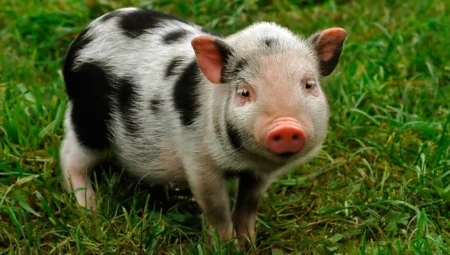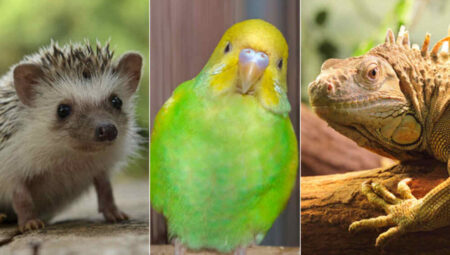The relationship between prayer and pets is a topic that reflects the intersection of faith, spirituality, and the bond between humans and their animal companions. In Christianity, the perspectives on praying for pets can vary among different denominations, reflecting diverse theological interpretations and beliefs.
Prayer for Pets in Christianity:
General Perspective:
In many Christian traditions, prayer is considered a means of communication with God, seeking guidance, comfort, and blessings. Pet owners may find solace in offering prayers for their beloved animals, seeking health, protection, or expressing gratitude for their companionship.
Catholicism:
Within Catholicism, pets are regarded as part of God’s creation, and prayers for animals are often seen as expressions of care and compassion. Some Catholic churches hold special ceremonies, such as the Blessing of Animals on the feast day of St. Francis of Assisi, where pets are blessed to honor the saint’s love for all creatures.
Protestant Denominations:
Protestant denominations may vary in their views on praying for pets. Some may consider prayers for animals as a way to show gratitude for God’s creation and seek divine protection. Others may view it as less significant or may not have specific rituals or ceremonies related to pets.
Orthodox Christianity:
In Orthodox Christian traditions, pets are often valued as part of creation and God’s care. Although there might not be formalized prayers or blessings specifically dedicated to pets, Orthodox believers may offer informal prayers seeking God’s blessings and protection for their animals.
Interpretation and Practice:
While many Christians pray for their pets, the act of praying for animals might not hold the same emphasis or prominence as praying for humans or larger communal concerns within religious services or practices. The focus in Christian prayer often centers on interceding for people, seeking spiritual guidance, and addressing broader societal issues.
In Christianity, the act of praying for pets is often viewed through the lens of care, gratitude, and seeking divine blessings for these beloved companions. Different denominations within Christianity might approach this practice with varying levels of formality and emphasis, reflecting their distinct theological perspectives and practices regarding the place of animals in God’s creation.
Ultimately, praying for pets is seen as a way for individuals to express their care and appreciation for the animals in their lives, seeking spiritual support and blessings for their well-being within the context of their faith.
How do Christian religions and denominations view euthanasia of animals?
Christian religions and denominations hold varied perspectives on the euthanasia of animals, reflecting diverse theological interpretations and ethical considerations.
Catholicism:
Within Catholicism, the Church generally discourages euthanasia for animals unless it is for relieving suffering or for mercy reasons. The Catechism of the Catholic Church emphasizes the responsibility humans have in caring for creation and treating animals with kindness and compassion. While there isn’t an explicit stance on euthanasia for animals, the Church promotes humane treatment and the alleviation of unnecessary suffering.
Protestant Denominations:
Protestant denominations might have varying views on euthanasia for animals. Some may consider euthanasia acceptable in cases of severe suffering or incurable illness as an act of mercy. Others might emphasize the responsibility to provide care and alleviate suffering but might not explicitly support euthanasia as a preferred option.
Orthodox Christianity:
Orthodox Christianity often emphasizes stewardship and compassion toward animals. While there might not be specific doctrines addressing euthanasia for animals, Orthodox Christians may approach such decisions with a focus on alleviating suffering and acting with compassion and responsibility.
Ethical Considerations:
Across Christian denominations, ethical considerations include:
- Compassion: Compassionate care and consideration for the suffering of animals, weighing the ethical implications of euthanasia as a means to alleviate severe and incurable pain.
- Responsibility: Acknowledgment of humans’ responsibility in caring for animals, including making decisions in their best interest when faced with terminal illness or suffering.
- Prudence and Mercy: Considering euthanasia as a last resort when there is no viable means to relieve an animal’s suffering, while exercising prudence and seeking guidance from ethical principles and compassion.
Christian denominations often approach euthanasia for animals through the lens of compassion, responsible stewardship, and ethical considerations. While there might not be unified doctrines on euthanasia for animals, the emphasis remains on treating animals with care and minimizing unnecessary suffering, sometimes allowing for euthanasia as a compassionate option in certain circumstances. Individual interpretations and pastoral guidance within each denomination can influence perspectives on this complex ethical issue.

What does the Bible/Quran/Torah say about pets?
The Bible, Quran, and Torah—sacred texts in Christianity, Islam, and Judaism, respectively—do not have explicit, direct references to pets as we understand them today. However, these scriptures contain passages that indirectly touch upon themes related to animals and the broader concept of care for living beings.
Bible:
- Genesis 1:24-25 (NIV): In the creation narrative, God creates animals, emphasizing their importance as part of God’s creation and bestowing humans with responsibility over them.
- Proverbs 12:10 (NIV): “The righteous care for the needs of their animals, but the kindest acts of the wicked are cruel.” This verse emphasizes the ethical treatment and care for animals as a sign of righteousness.
Quran:
- Surah Al-An’am (6:38): The Quran mentions that there is no creature on Earth or bird that flies with wings that isn’t a community like humans. This implies a sense of community and diversity among living beings created by Allah.
- Surah Al-An’am (6:143): Emphasizes the lawful consumption of certain animals as food and provides guidelines for their proper treatment.
Torah:
- Genesis 9:9-10: After the Flood, God establishes a covenant with Noah and includes animals in that covenant, highlighting their significance in God’s plan.
- Exodus 23:5 (NIV): “If you see the donkey of someone who hates you fallen down under its load, do not leave it there; be sure you help them with it.” This verse speaks to the broader theme of compassion and care for animals.
While these scriptures do not specifically address the concept of pets as domesticated animals kept for companionship, they emphasize themes of stewardship, care for animals, and compassion towards all living beings. They encourage ethical treatment and responsibility toward animals as part of God’s creation. Different interpretations and commentaries within these religions might shed additional light on these themes and their application to contemporary relationships between humans and animals, including the care of pets.




